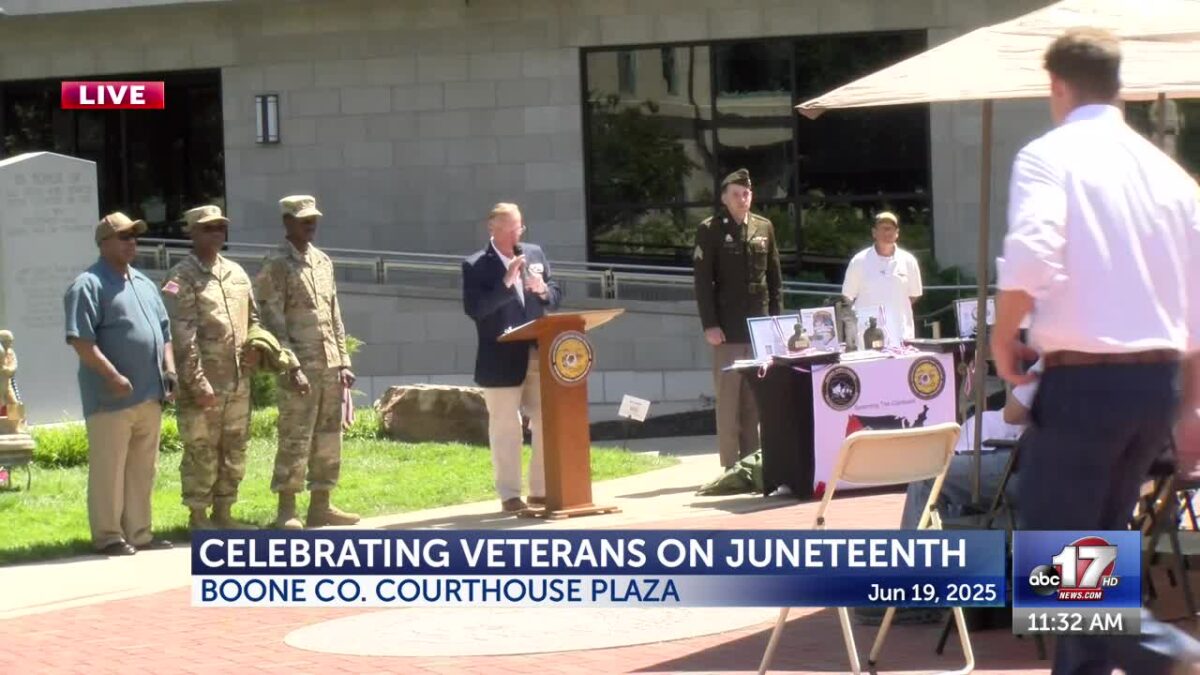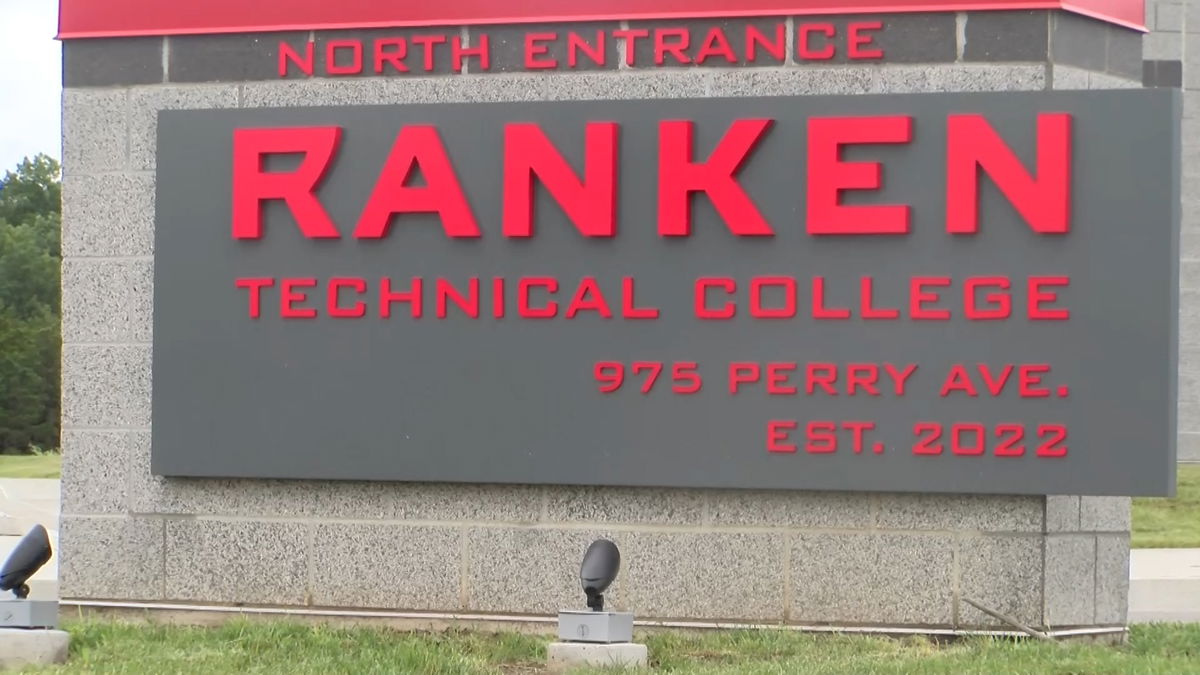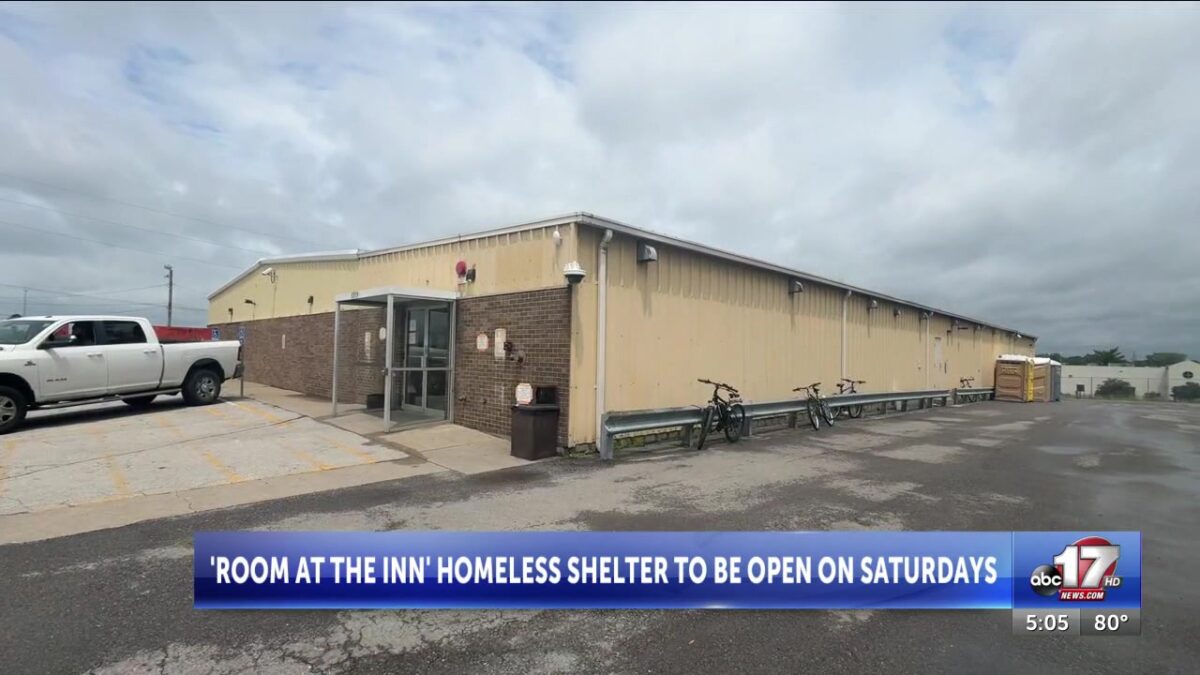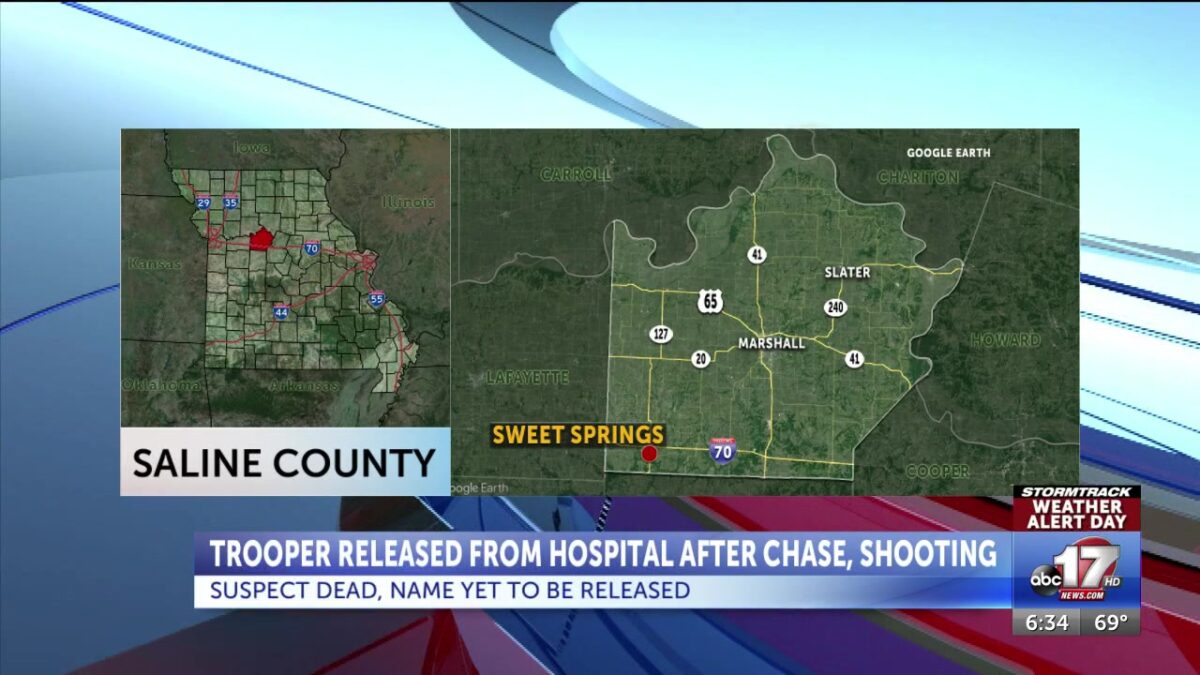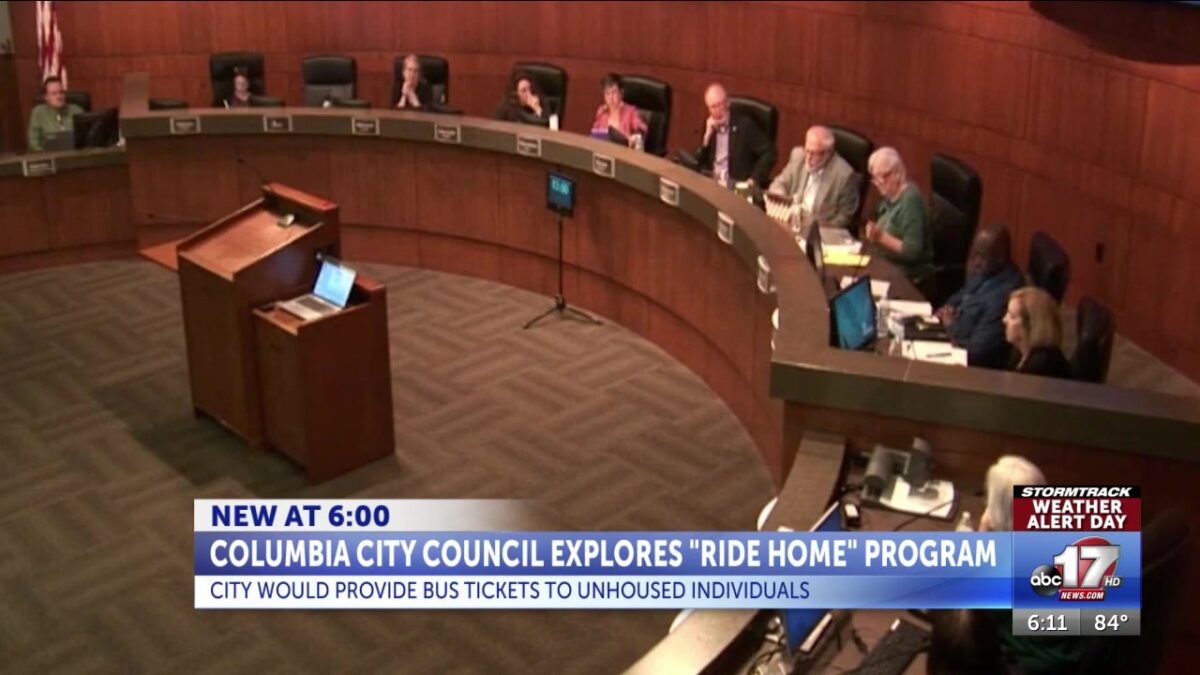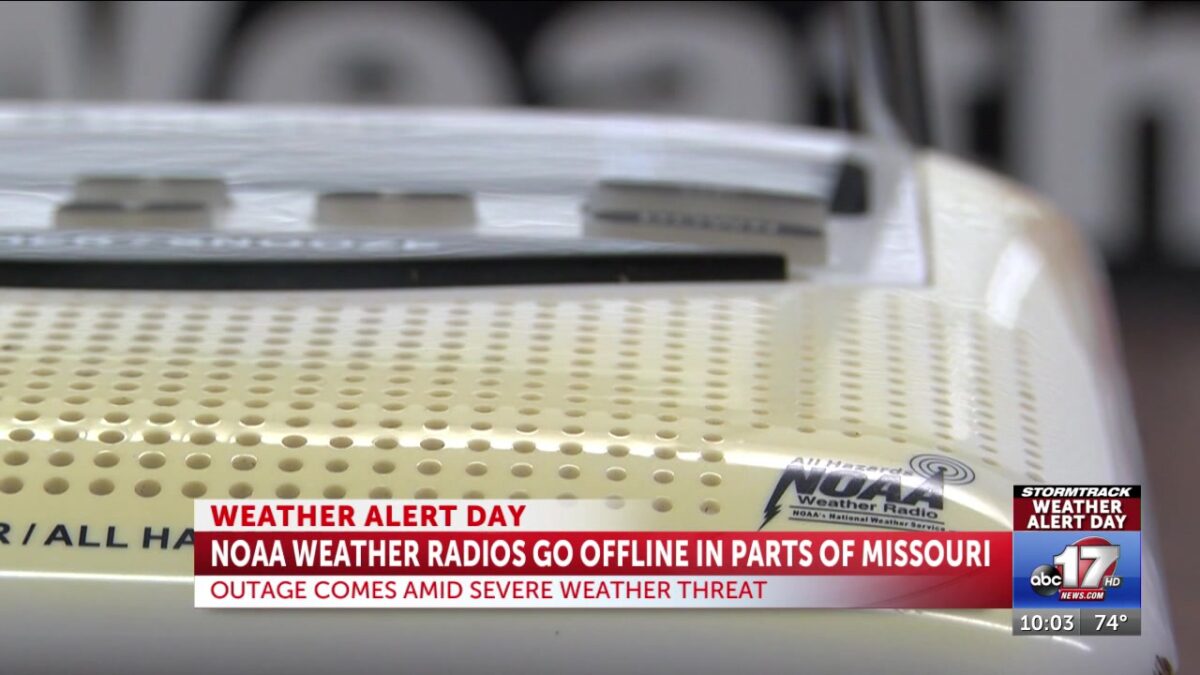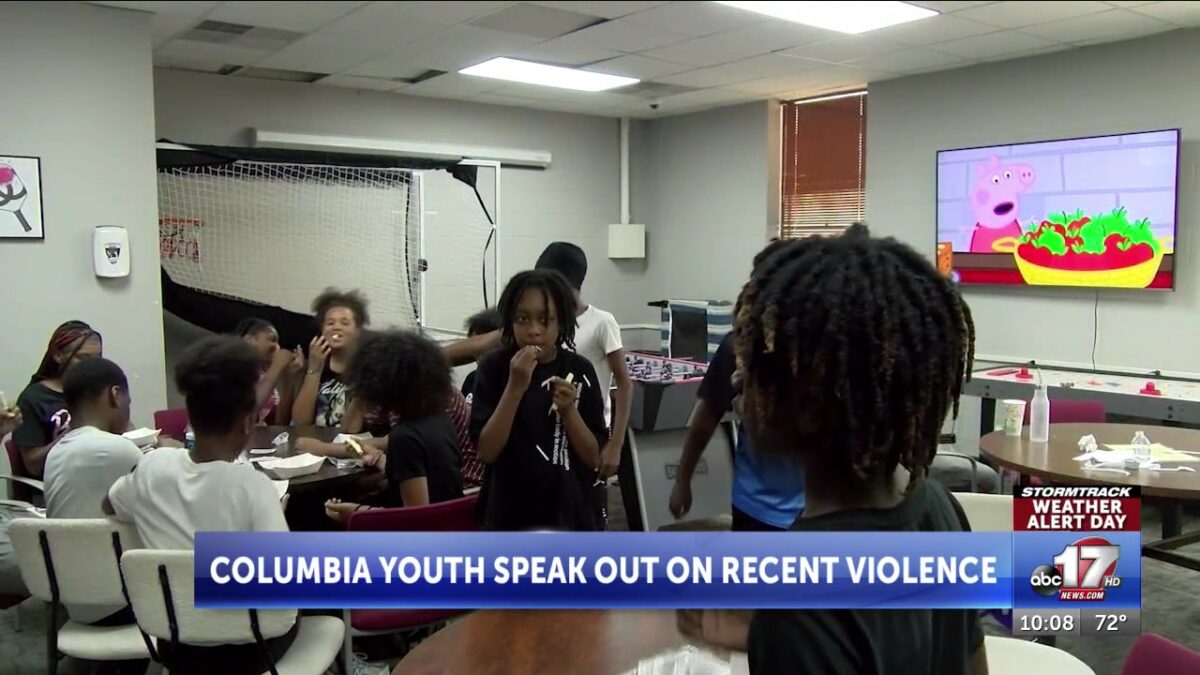Multiple Juneteenth celebrations held in Columbia
Jazsmin Halliburton
COLUMBIA, Mo. (KMIZ)
Multiple family-friendly events took place across Columbia on Thursday to celebrate Juneteenth, which is considered the longest-running African American holiday.
“They Were Always There” Tribute to Black Veterans was held at 11 a.m. at the Boone County War Memorial Plaza. This event, hosted by the U.S. Exercise Tiger Foundation, featured a wreath-laying ceremony and medal presentation.
Executive Director of the U.S. Tiger Foundation, Walter Dominski he’s honored to help the organization hold the event to recognize African Americans on this day.
“United States Exercise Tiger Foundation is very honored that we can recognize our black veterans and soldiers that took part and that serve and sometimes go unrecognized,” said Domanski.
Veteran siblings Vanessa and Kenneth Bradford were some of the recognized, telling ABC 17 they feel honored to be recognized on Juneteenth.
“I’ve never been out for the Juneteenth celebration. So for this to be an honored day and they honored me, I’m like, what? You know? So I just felt like that was just so positive,” said Vanessa Bradford.
“I feel outstanding. I am overjoyed. It’s been an honor. But it feels amazing to be appreciated,” said Kenneth Bradford.
From noon to 4 p.m., Powerhouse Community Development Corporation also hosted its annual Juneteenth event at Cosmo Park in the Burford shelter. This featured live cultural entertainment, educational activities for kids, historical displays, multi-age games, food and drinks.
Powerhouse Committee CEO Charles Stephenson tells ABC 17 how excited he was for Powerhouse to be able to help put this event on for the community to come together in celebration of the holiday.
“It’s exciting that we can celebrate our rich culture and history here in America, here in Columbia, with other people from all race, creeds and colors,” said Stephenson
Stephenson said that everyone coming out to the event to celebrate shows him that even though in recent light gun violence has affected the city of Columbia, people can come together and help the kids get away from all that and celebrate.
COMO’s Juneteenth celebration and luncheon was also at Douglas Park.
The final event for Thursday is the “Let Freedom Ring” event from 6 p.m. to 8 p.m., presented by the Columbia African American Business Alliance at the Urban Empowerment Ministries, 2404 Industrial Drive.
Juneteenth celebrations are set to continue throughout the weekend as well, including the 3×3 basketball tournament for kids grades 3-12 and the Juneteenth parade on Saturday starting at 9 a.m.
All Juneteenth events are free and open to the public.
Additional Juneteenth events taking place this weekend can be found here.
